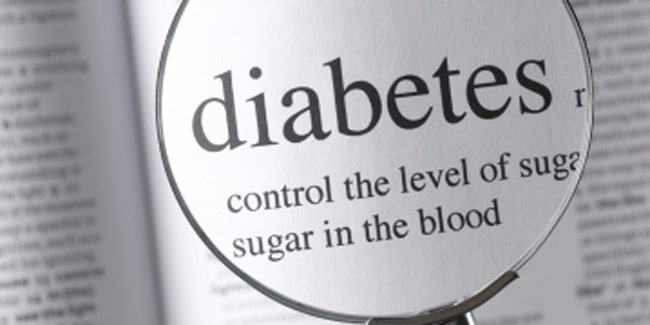
Diabetes is a chronic metabolic disease in which the defects in the insulin production or function cause high blood sugar levels in the body. When we eat food, the pancreas releases insulin hormone to move glucose from blood into the cells. The sugar starts to build up in the blood when the insulin is not used properly by these cells or if the body is not able to make enough insulin. The build up sugar in the blood over flows in to the urine and passes out of the body.

Symptoms
Some common symptoms of diabetes include:
- Excessive thirst
- Hunger
- Urination
- Fatigue
- Slow healing sores and cuts
- blurry Vision
Types of Diabetes

Type 1 Diabetes
It is categorised as an autoimmune disease which occurs insulin producing cells in the pancreas are attacked and destroyed by the misdirected immune system of the body. The exact cause of the type 1 diabetes is not completely understood but genetic or environmental factors are suspected to trigger the symptoms of type 1 diabetes. It can occur at any age but it more commonly found in children and young adults. Insulin intake must be taken on daily basis to manage this type of diabetes.
Type 2 Diabetes
This type of diabetes is characterised by the insulin resistance and it develops gradually with age. The causes of type 2 diabetes are also known understood completely but the cells of the body are unable to use insulin effectively. The resistance to use insulin makes body’s fat, liver and muscle unable to take in and store glucose. The glucose starts to build up impairing body’s functions. It is more common in people who are overweight or follow a sedentary lifestyle.
Gestational Diabetes
Gestational diabetes is characterized as elevation in blood sugar levels during pregnancy. If not diagnosed or treated on time, high birth weight and breathing problems for the baby can occur. Pregnant women are tested for gestational diabetes between 24 and 28 weeks of their pregnancy.
Read Next
What is Diabetes
How we keep this article up to date:
We work with experts and keep a close eye on the latest in health and wellness. Whenever there is a new research or helpful information, we update our articles with accurate and useful advice.
Current Version